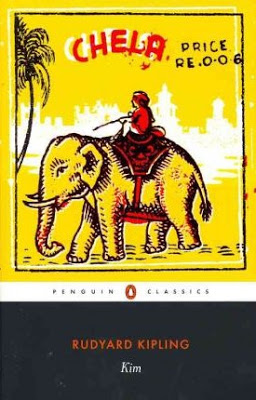
Kim is scheduled for Literature in Term 3 of Ambleside Online Year 5. I started listing vocabulary that I thought may need some explanation and research but then I came across this very helpful chapter by chapter resource at the Kipling Society website. I think it covers just about everything that could possibly be problematic, plus some!
To get some background on India culturally and historically, I got together the following maps, websites, books and images that I thought were (or could be) helpful:
For a general background on India, these books by Bobbie Kalman are well done:



‘The major world religions and their beliefs about God. Hinduism, Buddhism, Islam, Christianity, and New Age…’
Fairly simple explanation of various religious beliefs with a little graphic to describe each one. I read through some of this with Moozle prior to her starting Kim.
The notes on the Kipling Society web pages I linked to above define the various religious beliefs/cultures as they come up in the story, but I liked the graphics at this website which helped explain things more clearly.
Kim was published in 1901 and the setting was India under British rule. In 1947, Colonial India was divided into two separate states: India and Pakistan (the Partition of India). The map below shows India prior to Partition.
There is some history here and maps to show the changes which occurred as a result of Partition.
India after Partition – Lahore, where Kim begins, is now in Pakistan:
Lahore Museum (the ‘wonder house’ Ch 1))
‘The Great Game’ – the struggle between the British and Russian Empires for supremacy in Central Asia. In Chapter 3 of Susan Wise Bauer’s Story of the World, Volume 4, she writes about Russia and Britain’s attempts to try to gain control of Afghanistan. This chapter is scheduled in Week 26 of Ambleside Online Year 5.
More on The Great Game here (for children) and here.
Benares, now known as Varanasi (Kashi); Ganges River. Some great photos here












Oh, Carol, thank you so much for this post! My son and I are reading and/or listening to Kim this term, and I will definitely be sharing this with him!
LikeLike
I so appreciate your resource posts like this Carol! Your Moozle is about a year ahead of my oldest dd, so they are always well-timed to refer to for my own personal preparations. We are using your Madam How posts now as we work our way through that book, and I'm pinning this one for future reference! Thanks for taking the time to share these.
LikeLike
Jumping up and down with happiness over this post!!! We also used your MHLW posts. Invaluable. We start Y5 in July, so bookmarking this for when we hit term 3. Thank you, thank you.
LikeLike
My pleasure, Anna!
LikeLike
Thanks Jen. Good to know the MHLW posts have been helpful.
LikeLike
You're welcome, Virginia. I was so happy when I found the Kipling Society notes – pity I didn't see them before I did all my research on the first five chapters!
LikeLike
Thank you! Like the other ladies, we used your MHLW posts this past year, and they were a great help. This is going in my Evernote file for Year 5. I so appreciate it!
LikeLike
Thanks, Celeste. X
LikeLike
Awesome job!
LikeLike
Thanks Anne!
LikeLike
Thanks for all those support materials… we read up to half of Kim, and I dropped it there. It was too rich for my read aloud in the car. But I loved loved it, I need to finish it myself. We watched the movie after half of the book.
LikeLike
And those Society Notes are a gem. I wish my version had them. I'm getting to appreciate a good annotated edition for some books, even if one understands the context, etc. My Galdós edition of Our Friend Manso has delicious notes, and it just enhances my reading.
LikeLike
It's not an easy book but we have the added plus that Moozle's older brother is in the Indian Himalayan area while she's reading and I've got out the maps I used when I was travelling there years ago so the interest factor is high.
LikeLike
I haven't seen the movie but I'll keep it in mind for later 🙂
LikeLike
Yeap. I also think it's a book to be read independently, that's my opinion. I know some friends read it aloud, but while I read up to half in the car, I got more out of the colloquialisms by looking at them in print, versus my crowd trying to follow my read aloud. It was beautiful, I do love Kipling, he is right up my alley. (And wow, talking about connections and relationships! That's surely a huge plus, about your son.
LikeLike
Moozle and you all will love it. It's a nice visual. It obviously has less than the book, but in its category, as a movie, it's very unique and charming.
LikeLike
Thank you!! I've read and greatly enjoyed Kim with my daughter a couple years ago, but I didn't dig in to find these sorts of resources to help flesh it out. Thanks for doing this, they will be so helpful with my son when we read it this school year!
LikeLike
Thanks, Amber. I really enjoyed reading it all myself!
LikeLike
What a great resource this is! We just finished studying India – here's our summary of what we learned: http://desperatehomeschoolers.com/2016/05/03/learning-india-winter-promise-children-around-world/Thanks for sharing this at Booknificent Thursday on Mommynificent.com!Tina
LikeLike
I bookmarked the video you linked & look forward to viewing it. Thanks, Tina.
LikeLike
How in the world did I miss this? Carol, this post is incredible! Thank you!!
LikeLike
Thanks, Dawn:)
LikeLike
Pingback: 10 Years of Blogging | journey & destination